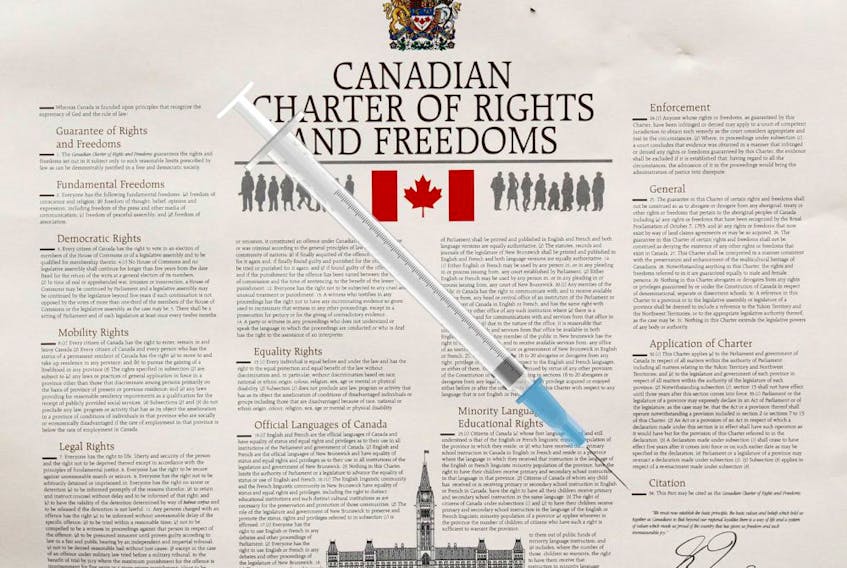If you are following the course of policy evolution on assisted-suicide law, you may have noticed that the Liberal’s “Charter statement” on the new legislation, Bill C-7, was tabled in the House on Wednesday. Because C-7 is a repair job on a previous law that the courts didn’t like, the charter statement is unusually meaningful in this case. It is essentially a legal factum discussing the possible Charter of Rights and Freedoms concerns with C-7, and expressing the government’s reasons for thinking that it will all be OK this time with the ermine gang.
Charter-wise, the riskiest part of the new law is the absolute prohibition on assisted death for patients whose only medical condition is a mental illness. There was nothing like this in the first iteration of the law. That version made all patients ineligible for assisted euthanasia if their natural death from an underlying disease was not “reasonably foreseeable.” The mentally ill seeking death because of isolation, delusions or depression were naturally excluded, since they belonged to the wider category.
A Quebec court struck down that law on petitions from two people with worsening and lifelong, but not terminal, physical ailments. No court has yet discussed eligibility for the mentally ill, since they were never explicitly dealt with in the previous laws, although the patient’s capacity to consent to suicide is naturally paramount in all the analyses of these laws.
So can the government, in a constitutionally compliant way, make an absolute rule against offering suicide assistance to the psychiatrically sick? The government thinks so. In its charter statement, it says: “The exclusion is not based on the assumption that individuals who suffer from mental illness lack decision-making capacity.… Nor is the exclusion based on a failure to appreciate the severity of the suffering that mental illness can produce.”
Great! So what is it based on, then? “First, evidence suggests that screening for decision-making capacity is particularly difficult, and subject to a high degree of error, in relation to persons who suffer from a mental illness serious enough to ground a request for MAID.”
This is an interesting claim, for the premise of almost all our laws and policies concerning the mentally ill is that they can be confined, deprived of legal autonomy or compelled to accept medication and other treatments if someone has decided they lack “decision-making capacity.” Suddenly, where the extension of a legal privilege is concerned, we have decided that psychiatry is actually a wilderness of ineptitude and that no expert can rule on such things.
Hey, I’m willing to accept it! But the charter statement’s second point runs into a sturdier barrier. The government says that denying assisted suicide to the mentally ill is all right because “mental illness is generally less predictable than physical illness in terms of the course the illness will take over time.”
Listen, I’m not a lawyer, but isn’t this just “reasonable foreseeability” smuggled back into the law exclusively to bar the mentally ill? The courts already screamed out that you can’t deny assisted suicide to physically ill patients just because the pattern of their disease was unpredictable and might be prolonged. Betting on the behaviour of appellate courts is a mug’s game in Canada, but in this case I will put my money where my mouth is. They’ll reject this argument. It is hard to see how they could do anything else.
Remember that we are discussing a change to the Criminal Code here. The purpose of the law is to suspend criminal penalties for physicians and other health-care workers who have examined and cared for a seriously suffering patient; whose expert judgment is recognized; and who are convinced that they cannot help the patient much. They are willing to affirm on their professional honour that the patient’s quality of life will be irreparably compromised by his disorder, that he understands his predicament, that he has decision-making capacity and that it is reasonable for him to accept a peaceful death at a time of their choosing.
But the law as it stands also says, “If it’s just some wacko who wants to die, no deal.” Experience in other countries suggests that there will be cases in which a responsible psychiatrist is convinced of all the factors in that last paragraph — that the patient wants to die, may rationally prefer to die, understands his prognosis and has an illness that resists all known treatment. Our Constitution, or the constitutional superstructure that courts have erected, obliges us to give the maximum deference to the rights of such patients and such doctors. And it is too late, now, to take the right to die off the list. The Liberals’ escape from this trap is not yet apparent.
National Post
Twitter.com/colbycosh
Copyright Postmedia Network Inc., 2020









